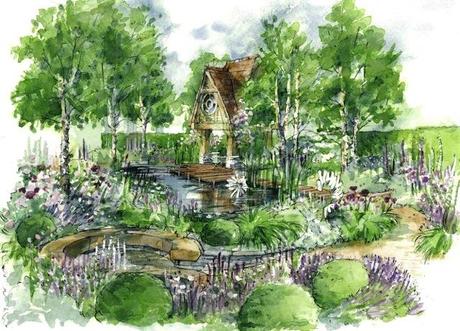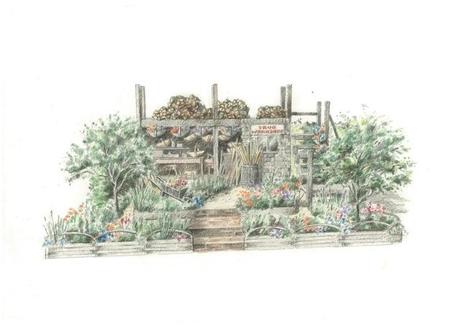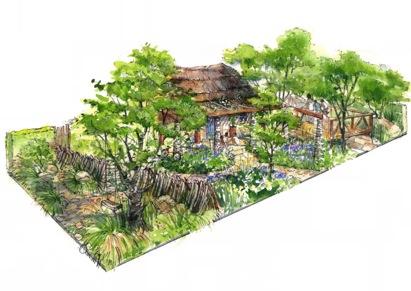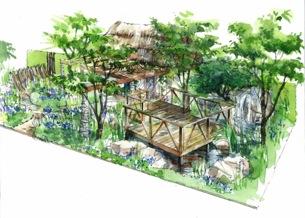In my earlier post about Sir Paul Smith, I wrote about the role of green as the anchor that holds everything in place in a garden – so it’s unsurprising that the greenness was what I noticed as I looked at some of the drawings of this year’s Chelsea gardens. No doubt, when we get to Chelsea our eyes will seek out the excitement, and the actual gardens will be further enlivened by shape, texture and the play of light, but it is useful to see the contribution that green makes to each of the gardens and bear it in mind for the planting in our own garden.
Jo Thompson’s Sylvan Retreat will have a two storey writer’s retreat tucked amongst a glade of birches and ‘floating’ in the middle of a natural swimming pond. It looks wonderfully romantic and promises tumbling roses and blowsy paeonies – only comment is that with all those lovely distractions will the writer ever get any work done!


Prince Harry’s Sentebale Garden
This garden, designed by Matt Keightley is an interpretation of the Mamohato Children’s Centre, a sustainable, beautiful and locally-inspired center that will support to some of Lesotho’s most vulnerable children where one child in three is an orphan and 40,000 adolescents are living with HIV. Called ‘Hope in Vulnerability’, Matt will use traditional and sustainable Lesothan building techniques and plant the garden with vibrant color combinations.


